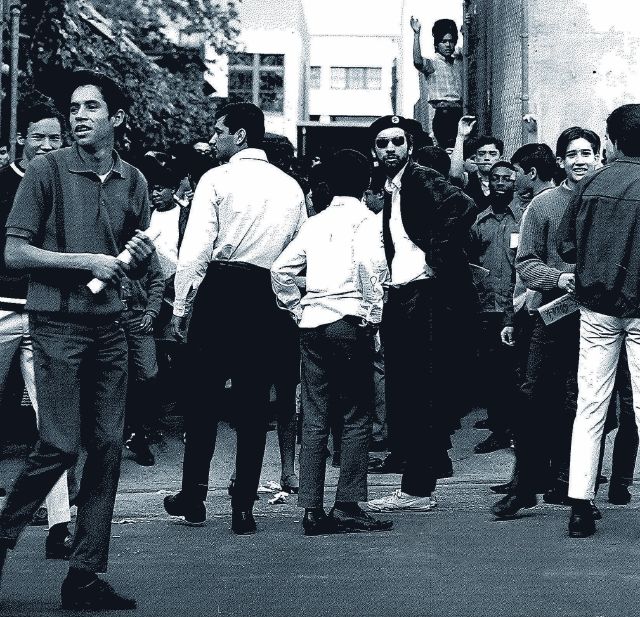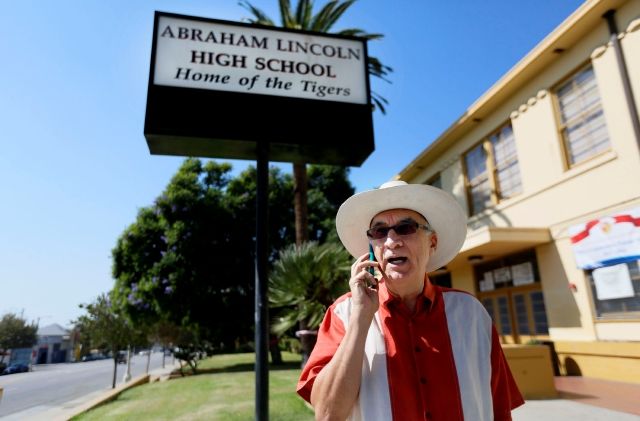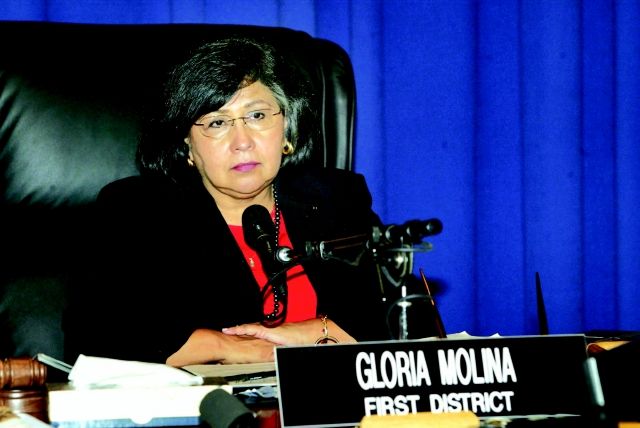Both parties explain why they supported the measure or not, which sought to withdraw public services to undocumented immigrants

In 1994, California became a controversial state with the approval of Proposition 187, which proposed to deny undocumented immigrants medical and educational services; He also advocated deportation.
However, the pro-immigrant community did not remain silent and hundreds of leaders took a step forward to stop what could have been a catastrophic law for a state considered the sixth world power.
Carlos Montes, a community activist from East Los Angeles, said that when he heard the description of the bill he also felt threatened despite being a US citizen.
The native of Texas and Mexican parents said he could raise awareness with the immigrant community as he faced rejection for his language and skin color.
"I suffered discrimination and harassment at school, since elementary school," said the resident activist from Boyle Heights. "They slapped me, because back then I was allowed."
When he was studying in high school, Montes became involved in activism and became the co-founder of the "Brown Bereets" who fought for Chicano liberation.
Later, he was a member of the Community Service Organization (CSO), to advocate for the rights of the most disadvantaged in matters of education, immigration and police brutality.

Mass march
When the announcements to approve the 187 in the media began, Montes and his group decided to join the massive march that took place on October 16, 1994, just under a month for the proposal to be on the ballot. |
The measure had the motto "Save our state" (SOS) and proposed eliminating social and educational services for undocumented immigrants. In addition, it sought to allow law enforcement authorities to act as immigration agents.
Montes said that at that time also anti-immigrant groups advocated a series of initiatives in California such as abolishing bilingual education in schools and affirmative action, which provides educational opportunities for minority groups in universities.
In addition to this, Republicans were in control of the government in Sacramento and this became a threat to Latinos and immigrants.
The hundreds of participants in the march from East Los Angeles gathered at the intersection known as Five Points.
“The mega march was super full. The entire César Chavez street was full. We stay about two thirds of the way, ”Montes recalled and said that in his time this has been the first massive wave of pro-immigrant protest in Los Angeles.
He added that for him this was a motivating moment since the union of people was seen, regardless of immigration status, to go out to the streets to march for a fair and democratic state.
“And little by little the policy changed. We also saw that that motivated a large wave of (legal) residents to become citizens, ”said Montes.
"People said," it is better to organize and become citizens. "

Controversial Latinos
Montes said to remember that in those times of the march, there were several Latinos who became supporters of the rhetoric of then Governor Pete Wilson.
“I remember watching them on TV and I didn't like them… We saw them as Latinos who became‘ white washed ’, dark on the outside and white on the inside. We told them ‘Oreo cookies’, ”recalled the activist, who despite taking the floor with grace, he knew that in fact they were a threat.
One of these supporters of those times is the Latin Julio Girón who recognizes that he was a supporter of Proposition 187 but only partially.
Girón said he became an American citizen in 1987 and that shortly after he heard about Proposition 187, which caught his attention.
"Yes, I was in favor of penalizing adults (undocumented) who abused the system with public benefits," he said. "Like those who put their nephews, grandchildren and other relatives to benefit from taxes."
However, Girón said that when he learned that the measure would affect thousands of children, he retracted a bit.
“I don't like when they affect minors. But with adults yes, ”the Latino reaffirmed.
Another Hispanic who won the support of many but also the criticism of others, was the then supervisor of Los Angeles County Gloria Molina.

Although she began a strong campaign against Proposition 187, she also considered a great disrespect that in the mega march of October many Latinos waved the flags of Mexico.
He said that was part of the reason why Proposition 187 won because it filled fears with anti-immigrant voters by making them believe that California would be invaded by Mexicans.
The next day Proposition 187 was approved by 59% voters, the Los Angeles Unified School District (LAUSD) and the Los Angeles City Council filed a lawsuit to challenge the law in federal court.
However, the Los Angeles County Board of Supervisors refused to join the lawsuits claiming voters had already decided.
"My interest is to protect the welfare of the county and its residents but first I have to find out what kind of instructions the governor will give us before going to court to challenge anything," Supervisor Molina said at the time to the Los Angeles Times.
The law was eventually overthrown by the federal government ensuring that states cannot make immigration decisions which is a national issue.









